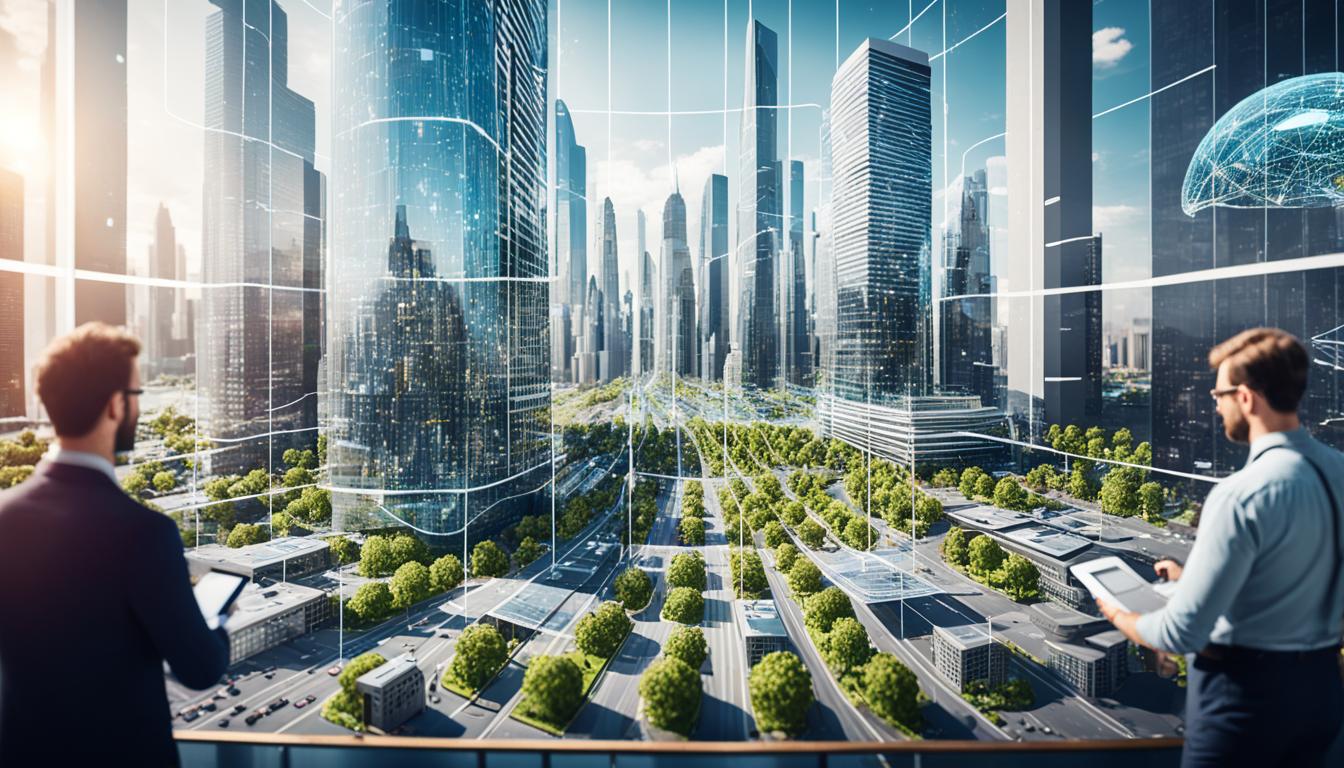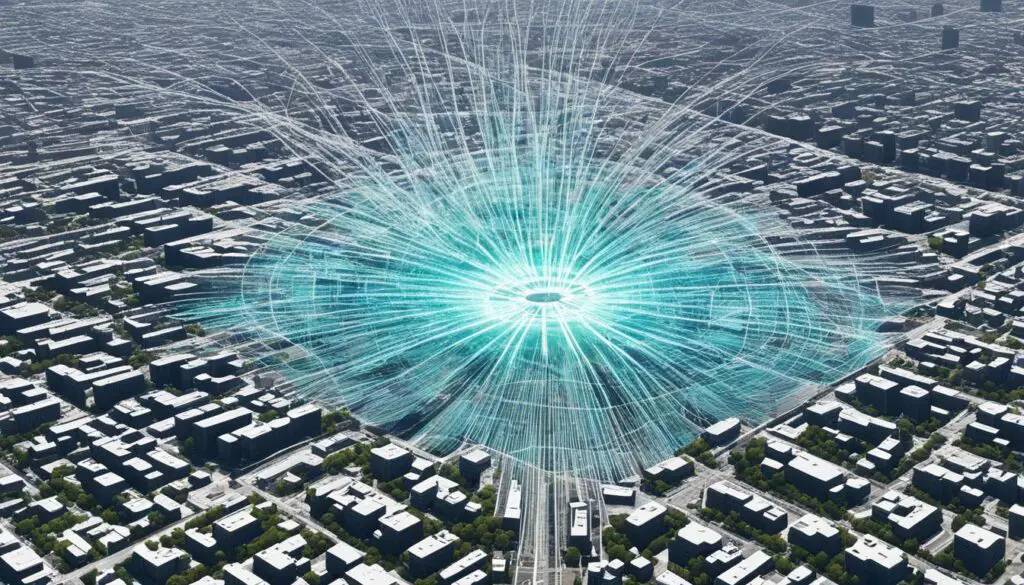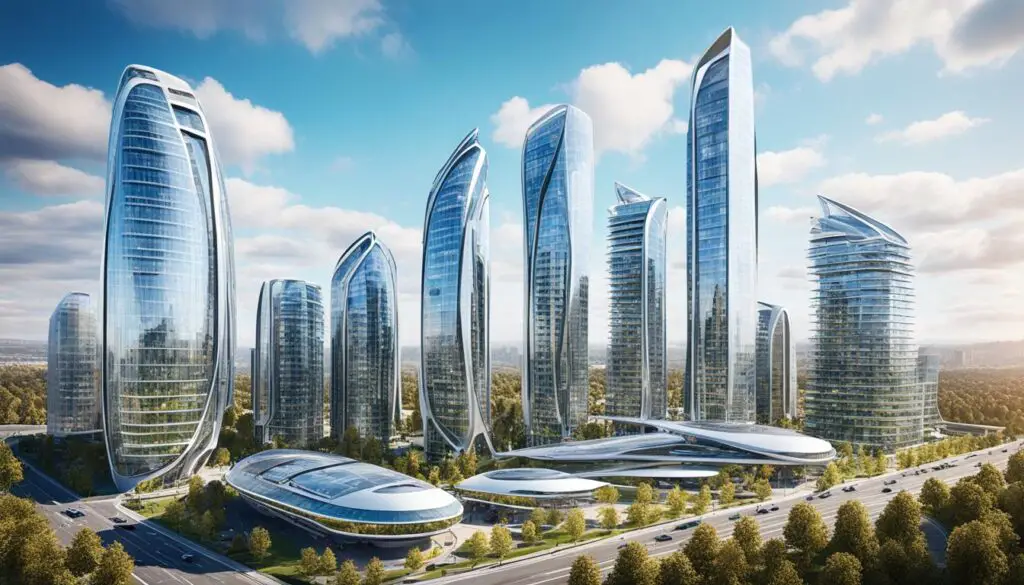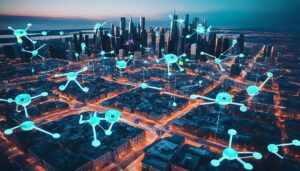
AI technology is revolutionizing the field of urban planning and design, paving the way for the creation of eco-friendly cities that are sustainable and efficient. By harnessing the power of artificial intelligence, urban planners can analyze massive amounts of data, make informed decisions, and create innovative solutions to urban challenges. With the use of AI, cities can be designed to optimize energy consumption, reduce carbon emissions, and enhance the quality of life for their residents. This article explores the transformative role of AI in sustainable urban planning and how it is shaping the cities of the future.
Key Takeaways:
- AI technology is revolutionizing urban planning, allowing for the creation of sustainable and eco-friendly cities.
- By harnessing the power of AI, urban planners can analyze vast amounts of data and make informed decisions.
- AI enables the development of data-driven models that simulate urban growth, traffic flow, and energy usage.
- Integration of AI with IoT devices enables the creation of smart infrastructure systems and energy optimization.
- The transformative impact of AI in urban planning is poised to continue growing, leading to smarter and greener cities.
The Power of AI in Data Analysis and Modeling
When it comes to urban planning, AI shines in its ability to process and analyze vast amounts of data. Thanks to AI algorithms, planners can gather information from a variety of sources, such as sensors, satellite imagery, social media feeds, and government databases, in order to gain valuable insights into urban patterns and trends.
This data-driven approach allows planners to develop accurate models that simulate urban growth, traffic flow, and energy usage. By analyzing this data, urban planners can make informed decisions and create sustainable solutions that meet the needs of their communities.
AI also plays a crucial role in identifying potential issues and predicting future scenarios. By leveraging the power of AI, planners can anticipate challenges and implement proactive strategies to address them. This ability to predict and prepare for the future is invaluable, as urban environments are constantly evolving.

Sophisticated Data Analysis
AI’s ability to analyze data at scale allows urban planners to uncover trends, patterns, and correlations that may have otherwise gone unnoticed. By harnessing AI’s data analysis capabilities, planners can gain a deeper understanding of the complex dynamics within urban environments.
“AI-enabled data analysis has revolutionized the way we approach urban planning. It has given us the ability to make data-driven decisions, leading to more effective and sustainable solutions for our cities.” – Jane Thompson, Urban Planner
Precise Modeling for Sustainable Solutions
Accurate models are the foundation of effective urban planning. With AI, planners can develop sophisticated models that accurately reflect the intricacies of urban environments. These models can simulate various scenarios and help predict the outcomes of different interventions.
For example, by inputting data related to traffic patterns, population density, and public transportation usage, AI-powered models can help urban planners design more efficient transportation networks that reduce congestion and emissions.
| Benefits of AI in Data Analysis and Modeling |
|---|
| 1. Enhanced decision-making based on data-driven insights |
| 2. Accurate predictions and proactive strategies to mitigate challenges |
| 3. Optimal resource allocation for sustainable solutions |
| 4. Improved understanding of urban dynamics and patterns |
By utilizing AI’s data analysis and modeling capabilities, urban planners can optimize resource allocation and create sustainable solutions that address the unique challenges of individual cities. AI’s invaluable role in data analysis and modeling is transforming urban planning, allowing for smarter and more future-proof cities.
AI-Enabled Smart Infrastructure and Energy Optimization
AI plays a crucial role in the development of smart infrastructure systems and energy optimization in sustainable cities. By integrating AI with Internet of Things (IoT) devices, urban planners can create a network of interconnected sensors and devices that collect and analyze real-time data. This enables the efficient management and monitoring of critical infrastructure, such as transportation systems, water supply networks, and waste management systems.
AI algorithms can optimize the usage of resources, minimize energy wastage, and improve overall efficiency. For instance, AI can be used to dynamically control traffic lights, reducing congestion and carbon emissions, or to optimize energy consumption in buildings based on occupancy and weather conditions.
Benefits of AI-Enabled Smart Infrastructure
“The integration of AI into smart infrastructure offers numerous benefits for sustainable urban planning and energy optimization. These include:
- Real-time monitoring and management of critical infrastructure.
- Optimized resource usage for increased efficiency and sustainability.
- Reduction of energy wastage and carbon emissions.
- Improved traffic management and reduced congestion.
- Enhanced quality of life for residents through improved services and utilities.”
With AI, cities can be transformed into intelligent and eco-friendly environments that prioritize efficiency and sustainability. The integration of AI with smart infrastructure systems holds great potential for creating a greener future.”

| AI-Enabled Smart Infrastructure | Benefits |
|---|---|
| Real-time monitoring and management of critical infrastructure | Allows for proactive maintenance and efficient allocation of resources |
| Optimized resource usage | Reduces wastage, minimizes costs, and enhances sustainability |
| Reduced energy wastage and carbon emissions | Contributes to a greener and more environmentally friendly city |
| Improved traffic management | Reduces congestion, improves transportation efficiency, and decreases pollution |
| Enhanced quality of life for residents | Ensures access to reliable services, utilities, and infrastructure |
Conclusion
The integration of AI technology in urban planning is revolutionizing the way we design and develop cities, offering innovative solutions for creating sustainable and eco-friendly urban environments. With the power of AI, urban planners can analyze vast amounts of data, develop accurate models, and optimize resources to create more efficient and environmentally conscious cities.
By leveraging AI’s data-driven approach, cities can be designed to optimize energy consumption, reduce carbon emissions, and enhance the quality of life for their residents. With the help of AI algorithms, urban planners can simulate urban growth, traffic flow, and energy usage, allowing them to make informed decisions and create sustainable solutions.
As technology continues to advance, the transformative impact of AI in urban planning is only set to grow. More and more cities are embracing the possibilities that AI offers, leading to smarter, greener, and more sustainable urban environments. The integration of AI in urban planning holds the potential to significantly enhance the quality of life for city dwellers while contributing to a more sustainable future.
In conclusion, the future of urban planning lies in the transformative power of AI. By harnessing AI’s capabilities, cities have the opportunity to become more sustainable, eco-friendly, and efficient, benefiting both the environment and the lives of their residents.
FAQ
How is AI revolutionizing the field of urban planning?
AI is revolutionizing urban planning by helping urban planners analyze data, make informed decisions, and create sustainable solutions. It allows for accurate modeling, optimization of resources, and the ability to anticipate future scenarios and challenges.
What is the role of AI in data analysis and modeling in urban planning?
AI plays a crucial role in data analysis and modeling in urban planning. AI algorithms can aggregate data from various sources, such as sensors, satellite imagery, and government databases, to gain insights into urban patterns and trends. This enables planners to develop accurate models that simulate urban growth, traffic flow, and energy usage.
How does AI enable smart infrastructure and energy optimization in cities?
By integrating AI with Internet of Things (IoT) devices, urban planners can create a network of interconnected sensors and devices that collect and analyze real-time data. This allows for efficient management and monitoring of critical infrastructure, such as transportation systems and water supply networks. AI algorithms optimize the usage of resources, minimize energy wastage, and improve overall efficiency.
What are the potential benefits of AI in sustainable urban planning?
AI in sustainable urban planning offers numerous benefits, including the optimization of energy consumption, reduced carbon emissions, and improved quality of life for residents. By harnessing the power of AI, cities can be designed to be smarter, greener, and more sustainable, contributing to a more sustainable future.
Source Links
- https://hughhewitt.com/
- https://www.stocktitan.net/news/AMC/amc-entertainment-holdings-inc-board-of-directors-elects-sonia-jain-hnt1k0sq4o8c.html








